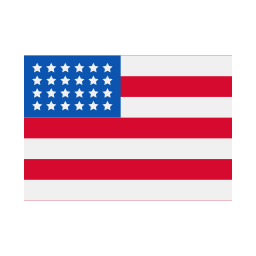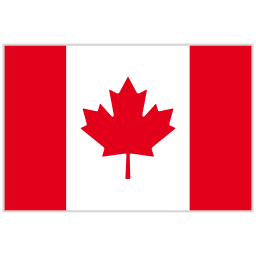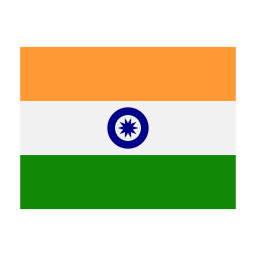THAILAND – GENERAL INFORMATION
 |

THAILAND
GENERAL INFORMATION
(5/2025)
GEOGRAPHY
Located in the
center of Southeast Asia, Thailand is truly at the heart of the region.
Looking over a map of Thailand will reveal a country whose borders form the
rough shape of an elephant’s head: the head and ears forming the mostly
landlocked northern and eastern provinces and the trunk extending down the
Malaysian peninsula between the Andaman Sea and the Gulf of Thailand.
The geography
of Thailand features many natural borders with neighboring countries: a
mountainous border with Myanmar (Burma) to the north and west; a long stretch
of the Mekong River separating Thailand from Laos to the north and east; and
the Mekong River and the Dongrak Mountains delineating the border of Cambodia
to the east.

Credit: Central Intelligence Agency
Covering an area of approximately 514,000 square kilometers (200,000 sq
miles), Thailand is the 50th largest country in the world, most
nearly equal in size to Spain. Located just 15 degrees north of the
equator, Thailand has a tropical climate, and temperatures typically range from
19 to 38 degrees C (66-100 F); monsoon rains fall predominately from May to
July and cooler, drier weather occurs around November and December.
Despite the geographical boundaries of Thailand all falling within the tropics,
Thailand’s four primary regions are each geographically
distinct from each other. Along Thailand’s western border with Myanmar, the
forested mountains of Thailand rise higher as they stretch north, peaking at
the 2,565-meter (8,415 ft) Doi Inthanon. Thailand’s northern peaks are
replete with wildlife and feature Thailand’s coolest winters.
Northeastern
Thailand’s geography, where the kingdom borders Laos at the Mekong River,
features the Khorat Plateau, which extends south towards the Thai border with
Cambodia. The Isan region of Northeastern Thailand is the most populous region
of Thailand (except for Bangkok) and features a number of bustling provincial
capital cities. The geography of Thailand’s interior is dominated by the
Central Plains, the “Rice Bowl of Asia,” through which the Chao Phraya River
feeds expansive rice fields and then enters the bustling capital of Bangkok
before spilling into the Gulf of Thailand.
Stretching down
the Malaysian peninsula, the slender trunk of the figurative elephant separates
the Andaman Sea from the Gulf of Thailand, providing Thailand with beaches and
islands along opposing shores. Once, the sheltered coves of the narrow
Isthmus of Kra were important ports along an ancient, strategic trading route;
today the islands of Phuket and Koh Samui are equally important as tourist
destinations, though both coasts also contain numerous historical attractions
as well as national parks, wildlife sanctuaries, and spectacular forests,
waterfalls, and beaches. In addition to these natural, geographical regions,
Thailand is divided into 76 political provinces, with Bangkok serving as the
political, commercial, industrial, educational, and entertainment capital of
the country.
HISTORY
Thailand’s
social history can be traced back to the Neolithic period and has witnessed the
rise and fall of a myriad of empires and dynasties. Thailand, as we know it
now, came into effect with the establishment of an alliance between three
kingdoms: Lan Na, Sukhothai, and Phayao in the 13th century. The 14th and 15th
centuries witnessed the establishment of the kingdom of Ayutthaya, which
continued until it fell to the Burmese, initially in 1569, then again in 1760
before finally falling again in 1767.
Thailand’s
current Chakri Dynasty began in 1782 when Phraya Chakri ascended the throne as
King Ramathibodi, Rama I. The new dynasty moved the country’s capital city to Bangkok where it
remains to this day.
King
Mongkut, Rama IV, instigated trade and diplomatic relations with European
countries in the mid-19th century. He also instituted educational reforms,
developing a school system along European lines. His son, King Chulalongkorn,
Rama V, led Thailand into the 20th century, establishing an effective civil
service, formalizing global relations and introducing industrialization. He
united the royal line under the title Rama and assigned the title Rama I to the
dynasty's first king.
During
the reign of King Prajadhipok, Rama
The
Thai military government sided with the Japanese forces in WW2 and was involved
in the construction of the infamous Burma-Siam railway, made legend by the
fictional British film Bridge Over the River Kwai.
The government also allowed US forces
to use Thai territory during the Vietnam War.
Democracy
has developed slowly in Thailand with corruption allegations, demonstrations
and military coups derailing the process on several occasions. After a quarter
of a century of military rule, civilian government was restored to Thailand in
1973 following student riots in Bangkok, but this was to last only three years
before the military again took control. The country continues to move between
civilian and military governments.
On
December 26, 2004, an earthquake in Southeast Asia triggered a tsunami that
impacted considerably upon Thailand's touristic infrastructure. The west coast
was the worst hit area, including outlying areas and tourist resorts near
Phuket. Many hotels were ruined; thousands were killed. Thailand has however
made a strong recovery from this terrible catastrophe and continues to be one
of the world’s top travel destinations.
THE
Mainland Thai culture is heavily influenced by Buddhism. However, unlike the Buddhist countries of East Asia, Thailand's Buddhists follow
the Theravada school, which is arguably closer to its Indian roots and places a
heavier emphasis on monasticism. Thai temples known as wats, resplendent with gold and easily identifiable with their
ornate, multicolored, pointy roofs are ubiquitous and becoming an orange-robed
monk for a short period, typically the three-month rainy season, is a common
rite of passage for young Thai boys and men.
One pre-Buddhist tradition that still survives is the spirit house, usually found at the corner of any house or
business, which houses spirits, so they don't enter the house and cause
trouble. The grander the building, the larger the spirit house, and buildings
placed in particularly unlucky spots may have very large ones. Perhaps the most
famous spirit house in Thailand is the Erawan Shrine in Bangkok, which protects the Erawan
Hotel (now the Grand Hyatt Erawan) - built in 1956 on a former execution ground
- and is now one of the busiest and most popular shrines in the city.
Some traditional arts popular in Thailand include traditional Thai
dancing and music, based on religious rituals and court entertainment. Famously
brutal Thai boxing (muay Thai), derived from the
military training of Thai warriors, is undoubtedly the country's best known
indigenous sport.
In addition to the mainland Thai culture, there are many other cultures
in Thailand including those of the "hill tribes" in the northern
mountainous regions of Thailand (e.g., Hmong, Karen, Lisu, Lahu, Akha), the
southern Muslims, and indigenous island peoples of the Andaman Sea.
SOCIAL
CONVENTIONS
Western
visitors will generally receive a handshake at meetings. A Thai will be greeted
with the traditional closed hands and a slight bow of the head - the wai.
Buddhist monks are always greeted in this way.
The
Thai Royal Family is regarded with an almost religious reverence. Visitors
should respect this. It is very bad manners to make public displays of anger,
as Thais regard such behavior as boorishness and a loss of 'face'. Public
displays of affection between men and women are also frowned upon, and it is
considered rude to touch anyone on the head or to point one's feet at someone.
Shoes should be removed before entering someone's home or a temple.
Informal
dress is widely acceptable, and men are seldom, if ever, expected to wear
suits. Beachwear should be confined to the beach and topless sunbathing is
frowned upon. Similar to western countries, smoking is restricted in public
areas
LANGUAGES
Thai
is the official language. English is widely spoken, especially in
establishments catering for tourists.
GOVERNMENT
Thailand is a constitutional monarchy, with the
king as a very highly respected and revered Head of State. The Thai parliament
is bicameral, consisting of a Senate, of which about half are directly elected
with each province electing one member, and the other half being appointed by a
committee, as well as a lower house which is directly elected by the people.
The Prime Minister is the Head of Government and is usually the leader of the
party with the most seats in the lower house.
In practice, the king's role is largely ceremonial,
with the Prime Minister holding the most authority in government. However, the
king and the royal family are still protected by strict lèse majesté laws, which stipulate long jail terms
for anybody convicted of insulting the king or any other members of the royal
family.
TIME
Thailand is 11 hours ahead of Eastern
Standard Time (EST)
ELECTRICITY
Thailand's voltage is 220-240AC, 50 Hertz. The plugs in
Thailand are not standardized -- there are at least three different types, some
two pin and some three, so be sure to either bring a universal adapter or buy
one once you arrive in Thailand.
CLIMATE
The
weather in Thailand is generally very hot, particularly between March and May.
The monsoon season runs from June to October, when the climate is still hot and
humid with torrential rains. The best time for travelling is November to
February (cool season), although the southern islands are best from June to
September.
CLOTHES
TO WEAR
Lightweights and rainwear are advised.
LOGISTICAL
Entry
& Exit Requirements:
You will be required to hold a
valid passport to apply for the Thai eTA (electronic Travel Authorization). You must apply electronically and obtain the permit to enter the
country. Please carry that permit with your passport. Your passport must be
valid for at least 6 months from the travel date. The passport you use to apply
for the eTA must be the same passport you use when entering the country since
the eTA is digitally linked to your passport.
Also required is the TDAC – Thailand Digital Arrival Card. The TDAC can also be processed online, or you may fill it
out at self service immigration kiosks which will likely delay your arrival
procedure.
Thailand’s entry/exit information is
subject to change without notice. For further information on Thailand’s
entry/exit requirements, contact the Royal Thai Embassy at 1024 Wisconsin
Avenue, N.W., Washington, D.C., 20007, telephone (202)-944-3600, or contact the
Thai consulate in Chicago, Los Angeles, or New York City. The Ministry of
Foreign Affairs website lists the Thai embassies and consulates worldwide and provides current information about
Thailand, including visa and other policies. The Royal Thai Police
Immigration Bureau maintains an English-language website as
well.
Embassy
Locations:
U.S. Embassy in Thailand
95 Wireless Road
Bangkok 10330
Thailand
Telephone: +(66) (2) 205-4049, 02-205-4049
(within Thailand)
Emergency
After-Hours Telephone: +(66)
(2) 205-4000, 02-205-4000 (within Thailand)
Fax: +(66) (2) 205-4103, 02-205-4103
(within Thailand)
Embassy of Canada in Thailand
15th Floor, Abdulrahim
Place
990 Rama IV Road
Bangrak, Bangkok 10500
Thailand Telephone: (66)
0-2646-4300
Fax: +66 (0) 2646-4336
http://www.canadainternational.gc.ca/thailand-thailande/index.aspx?lang=eng
HEALTH
Medical treatment is generally adequate in
Thailand’s urban areas. In Bangkok, Chiang Mai, and Pattaya good facilities
exist for routine, long-term, and emergency health care. Basic medical care is
available in rural areas, but English-speaking providers are rare.
Medical tourism is a rapidly growing
industry. The most common procedures that people undergo on medical
tourism trips include cosmetic and other elective surgery, dentistry, and heart
surgery.
Please note: Some medications may not
be permitted in the country. Please check if the medication you are bringing is
permitted in the country you are visiting.
Information
on vaccinations and other health precautions, such as safe food and water
precautions and insect bite protection, may be obtained from the Centers for
Disease Control and Prevention’s (CDC) hotline for
international travelers at 1-800-CDC-INFO (1-800-232-4636) or via the CDC website at http://www.cdc.gov/travel.
For information about outbreaks of infectious diseases abroad, consult the
infectious diseases section of the World Health Organization (WHO)
website at http://www.who.int/topics/infectious_ diseases/en/.The WHO website also contains
additional health information for travelers, including detailed
country-specific health information.
BANKS AND CURRENCY
Baht (THB; symbol ฿) = 100
satang. Notes are in denominations of ฿1,000, 500, 100, 50, 20 and 10. Coins
are in denominations of ฿10, 5, 2 and 1, and 50, 25, 10, 5 and 1 satang.
American Express,
MasterCard and Visa are widely accepted. ATMs are found in all major cities and
almost all provincial banks. ATMs are found in all major cities and almost all
provincial banks.
Banking hours: Monday-Friday from
8:30am till 3:30pm
COMMUNICATIONS
Thailand International Dialing Code is +66.
Post office hours: The General Post Office in Bangkok
(on Charoen Krung Road) is open Mon-Fri 0800-2000, Sat-Sun and holidays
0800-1300. Post offices up-country are open Mon-Fri 0800-1630, Sat 0900-1200.
Cell Phone Usage:
Please contact your cell phone provider to
determine whether your contract includes coverage in the country you are
visiting. Depending on your contract you may have to add international services
and/or country specific services.
ENTERTAINMENT
Food
and Drink:
Thai
food is traditionally hot and spicy, but most tourist restaurants tend to tone
down the heat for the more fragile Western palate. Most Thai food is prepared
with fresh ingredients such as lemon grass and coriander and rice is commonly
eaten with most meals. Popular fruits are papaya, jackfruit, mangosteens,
rambutans, pomelos (similar to grapefruits) and, above all, durians,
which farangs (foreigners) either love or hate. The thorny fruits
have a rather malodorous scent which has even resulted in many hotels banning
them from their premises.
Excellent
food can be found at the stalls of the many street vendors around the country
as well as top-notch eateries. There are also many Asian and European
restaurants throughout the major cities and smaller towns.
• Tom yam (a
coconut-milk soup prepared with makroot leaves, ginger, lemon
grass, prawns or chicken).
• Gang pet (hot 'red' curry with coconut milk, herbs, garlic,
chili, shrimp paste, coriander and seasoning).
• Pad Thai (stir-fried rice-noodles) served with shrimp or chicken
and garnished with peanuts.
• Desserts include salim (sweet noodles in coconut milk).
• Well worth trying is sticky rice and mangoes (rice cooked in coconut milk
served with slices of mango).
Bars
have counters or table service.
• Mekhong (local
whiskey) and SamSong (rum) are very popular.
• Singha and Singha Gold are locally made beers
which dominate the domestic market.
• Coconut milk straight from the shell during the harvest season is
particularly refreshing in the heat and humidity.
NIGHTLIFE
Bangkok offers
a wide range of entertainment venues, from nightclubs, pubs, bars, cinemas and
restaurants, to massage parlors, pool halls and cocktail lounges. The nightlife
is concentrated in three districts of Bangkok - Banglamphu, Patpong (between
Silom and Surawong roads), Sukhumvit Road and the nearby street of Soi Cowboy.
Bangkok's sex industry is as blatant and booming as ever.
Many
venues are open all day and late into the night, although bars and clubs are
supposed to close at 0200. Sometimes there is an admission fee, but this
usually includes one or two drinks. The dress code is very relaxed, although a
few of the nightclubs do enforce smarter clothing.
Performances
of traditional religious and court dances can be seen at the Thailand Cultural
Centre and Patravadi Theatre in Bangkok. Elsewhere on the mainland, nightlife
takes the form of traditional dances. The islands are renowned for their nightlife,
but attendance is almost exclusively by foreigners. The full moon parties are
notorious and continue well into the following morning. Performances by the
infamous katoeys (lady boys) are worth a visit.
SHOPPING
Duty-free shops are located at Bangkok, Phuket, Chiang Mai and Had
Yai airports as well as in the King Power Complex on Bangkok's Sri
Ayutthaya-Rangnam Road. Items can be purchased there and delivered to the
airport in time for the departure flight. Value Added Tax can be refunded on
goods bought in shops labeled 'VAT Refund for Tourists', but there will be a
minimum transaction. VAT Refund Application for Tourists forms are completed at
the time of purchase and it is necessary to show one's passport. Cash refunds
(minimums apply) can be obtained in the airport departure hall and often the
goods purchased must also be shown.
Souvenirs such as textiles,
handicrafts, antique reproductions, ceramics and jewelry are available; all
major cities and popular tourist haunts will offer some or all of these
although Bangkok and Chiang Mai have the greatest range and excellent markets. Generally,
souvenirs and tourist offerings are extremely good value but shoppers need to
check quality carefully.
Shopping hours:
Mon-Sun
1000-2100/2200
BAGGAGE
Baggage
rules for international and domestic air travel have changed much in recent
years, differ from carrier to carrier and these days even may cover your
on-board bags. Checking luggage may cost a separate fee or may be free
depending on your personal status with the carrier. We therefore encourage you
to read your ticket’s small print and/or contact your carrier for exact rules.
TIPPING
Gratuities are not included as a part of
our service. However, we would like to reiterate that tipping is NOT mandatory
and is entirely at your discretion, based on your level of satisfaction with
the services that you have received. Having said that, most service providers
do expect gratuity. We are pleased to provide you with the suggested guidelines
that you may use at your discretion.
LAUNDRY
PHOTOS & VIDEOS
In some countries you must refrain from photographing sites such as Military bases and industrial installations. Also be aware of cultural sensitivities when taking pictures of or near churches and other religious sites. It is always courteous to ask for permission before taking photographs of people.
USE
OF DRONES
The
use of drones is being legislated by many countries. In some cases, drones are
already forbidden and their unauthorized use may carry severe penalties. If you
plan to travel with a drone, please contact the embassy or consulate of the
country you wish to visit.




